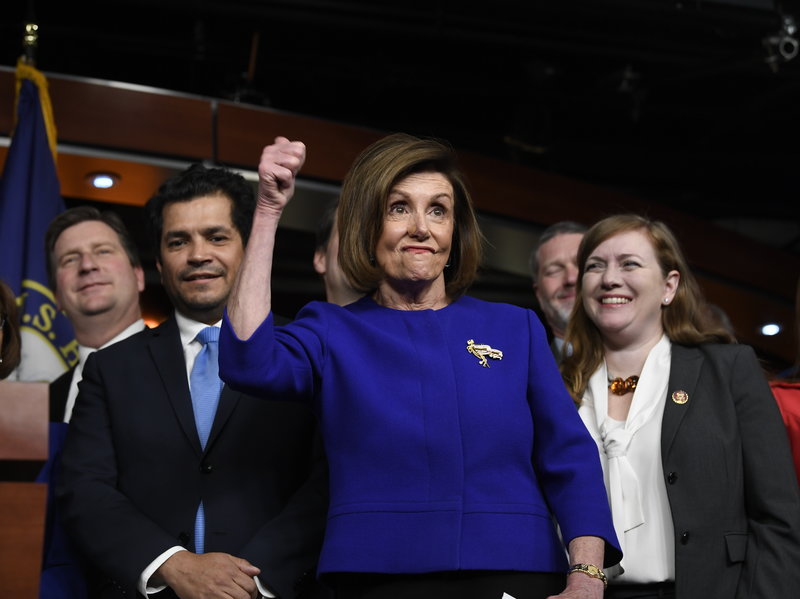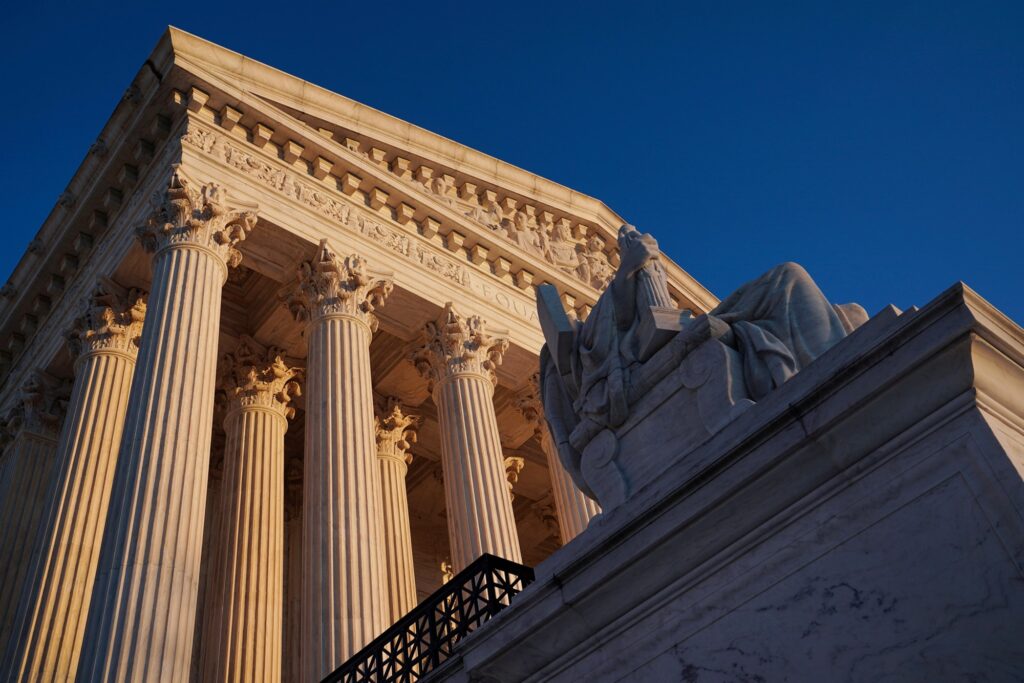Will Team Biden Weaponize Workers’ Pensions?
Big Labor abuse of worker pension and benefit funds as a means of advancing union bosses’ self-aggrandizing policy objectives is a familiar phenomenon.

Just a few weeks into the 2021-22 Congress, U.S. House Speaker Nancy Pelosi (Calif.) and the other members of her Democrat Party caucus voted to toss out the window constitutional principles upheld by the U.S. Supreme Court.
On March 3, 220 of the 221 Democrat House members rubber-stamped H.R.1, a power grab whose clear intent is to curtail the free speech of ordinary citizens — including, of course, the nearly 80% of habitual American voters who support the Right to Work principle.
People banding together with others who share their legislative goals to advance them through grassroots activism are special targets of H.R.1, even though such organizations have long been explicitly authorized in Section 501(c)(4) of the Internal Revenue Code.
National Right to Work Committee President Mark Mix explained:
“The so-called ‘DISCLOSE ACT’ provisions of H.R.1 would require nonprofit, citizen-action groups like the National Right to Work Committee to meet burdensome and stifling paperwork requirements simply in order to exercise basic First Amendment rights.
“Considered as a whole, these provisions’ design is clearly to silence everyone who disagrees with Nancy Pelosi.
“The eagerness of Ms. Pelosi and her Big Labor backers to use the power of government to silence Americans who support the Right to Work and others who oppose Ms. Pelosi’s radical agenda is audacious — and outrageous.”
Sixty-three years ago this spring, the U.S. Supreme Court unanimously and sharply rebuffed the State of Alabama for seeking to use its sovereign authority to obtain the names and addresses of members of the NAACP.
The author of the NAACP v. Alabama ruling was John Marshall Harlan II, generally regarded as an advocate of judicial restraint.
But no justice of any stripe dissented from his opinion, or even saw the need to qualify or add anything to what he said.
In explaining why Alabama government officials were not entitled to collect the names and addresses of NAACP members in their state, Justice Harlan noted:
“It is beyond debate that freedom to engage in association for advancement of beliefs and ideas is an inseparable aspect of the ‘liberty’ assured by the Due Process Clause of the Fourteenth Amendment, which embraces the freedom of speech.”
He added:
“Of course, it is immaterial whether the beliefs sought to be advanced by the association pertain to political, economic, religious, or cultural matters, and state action which may have the effect of curtailing the freedom to associate is subject to the closest scrutiny.”
Incredibly, H.R.1’s assault on free speech includes provisions authorizing precisely the type of government abuse the Supreme Court condemned in NAACP v. Alabama.
Ultimately, as this decision warned, “the effect of compelled disclosure of the membership lists will be to abridge the rights of . . . rank-and-file members to engage in lawful association in support of their common beliefs.”
“Based on the 9-0 NAACP v. Alabama precedent alone, the union bosses and their allies must know H.R.1 would, if adopted, ultimately be struck down by the courts,” said Mr. Mix.
“But they are proceeding, full-speed ahead, despite the huge constitutional obstacles they face.
“We’ve been down this road before — more than once.
“In 1973, for example, Big Labor ace attorney Joseph Rauh, acting on behalf of multiple unions, launched a lawsuit in connection with which he demanded the Committee and its sister organization, the National Right to Work Legal Defense Foundation, turn over our members’ personal information.
“The late Mr. Rauh never came close to getting Right to Work leaders to acquiesce to his demand, but he did succeed in forcing our organizations to spend 13 years and hundreds of thousands of dollars blocking him in court.
“To avoid a repeat of this regrettable diversion of Right to Work staff time and resources, the Committee is determined to defeat H.R.1 in Congress.”

Mr. Mix continued:
“Now that H.R.1 has been rushed through the House, this legislation itself or its Senate companion, S.1, can be taken up in Congress’s upper chamber at any time.
“Contrary to the preposterous claims of Ms. Pelosi and Senate Majority Leader Charles Schumer [D-N.Y.], who is leading the charge for S.1 in his chamber, trampling on the privacy of American citizens would do nothing to make our elections more honest, more informed, or more secure from foreign interference.”
On Feburary 1, Committee Vice President Greg Mourad and 133 other leaders of American civic organizations sent an open letter to Ms. Pelosi and Mr. Schumer, as well as House Minority Leader Kevin McCarthy (R-Calif.) and Senate Minority Leader Mitch McConnell (R-Ky.), expressing their opposition to H.R.1/S.1.
The signers represent the diverse interests of millions and millions of Americans who treasure their right to support causes they believe in without fear of state-sponsored harassment and intimidation.
“With the House, the Senate, and the White House now all simultaneously under Big Labor control for the first time in 10 years, there is an increasing danger a power grab like H.R.1/S.1 could become law,” acknowledged Mr. Mourad.
“That’s why the Committee is already preparing to launch, to whatever extent needed, a national mobilization to stall this attack on free association and the right to privacy in the Senate.
“In order for the Committee and its allies to prevail, we may need to launch and sustain an extended Senate debate against this scheme, deceptively labeled as the ‘For the People Act.’
“Right to Work is ready both to do everything necessary to defeat this outrageous legislation and to fight it in the courts.”

Big Labor abuse of worker pension and benefit funds as a means of advancing union bosses’ self-aggrandizing policy objectives is a familiar phenomenon.

Leaked CTU Proposals Won’t Do Anything to Improve Schools’ Poor Performance

What impact does handing a union monopoly power to deal with your employer on matters concerning your pay, benefits, and work rules have on your pay?